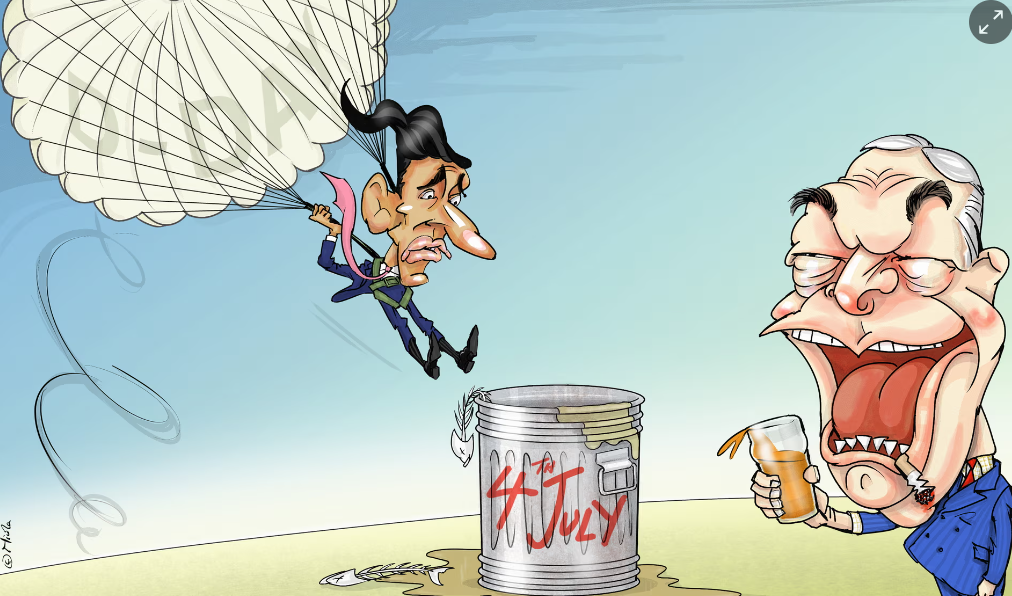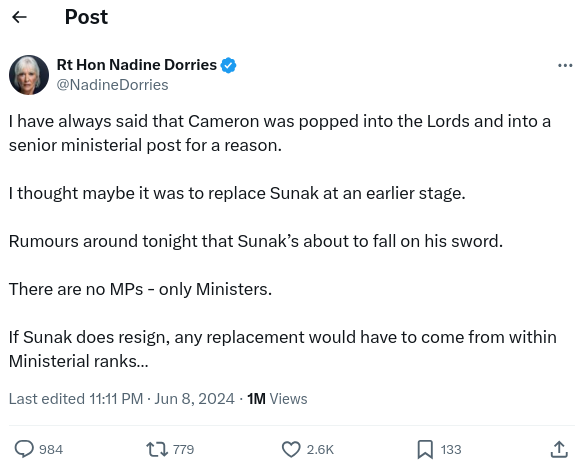Want to know what’s wrong with Britain? – Owl
The boss of South West Water’s owner has received a pay increase of £300,000, weeks after an outbreak of diarrhoea caused by a parasite in Devon’s water supply.
Jasper Jolly www.theguardian.com
Susan Davy, the chief executive of Pennon Group, was awarded £860,000 in total pay for the latest financial year, up from £543,000 the year before, according to accounts published on Monday.
The increase came despite Pennon executives agreeing to forgo bonuses for this year in recognition of the widespread outrage over sewage dumping.
Britain’s water companies have been under intense scrutiny in recent years over their environmental performance, amid disgust over the amount of raw sewage flowing into the UK’s rivers and seas.
Those concerns have been particularly relevant for customers of South West Water in Devon, after the outbreak last month of the parasite cryptosporidium, which causes cryptosporidiosis, often in the form of diarrhoea and vomiting. The parasite spreads from faeces.
South West Water customers near the seaside town of Brixham were advised to boil their tap water before drinking it. About 17,000 households were affected by the warning, with compensation of up to £265 for those still affected as of 7 June.
News of Davy’s pay increase comes amid a general election campaign in which water quality has played a prominent role.
Anthony Mangnall, who was the Conservative MP for Totnes and South Devon until the dissolution of parliament, said Davy should resign after refusing to change course on a £127m dividend. The dividend was decided last month despite the company making a £9.1m loss for the year.
“Once again South West Water have put themselves before the people,” he said. “From paying out dividends to increasing their own pay, this only goes to show that they are a company deeply out of touch with the needs and wants of the people.”
Davy’s pay rise came as she received £298,000 under a long-term incentive plan awarded in 2021, before the company had brought in changes to lower share awards if water quality was not up to scratch. That came on top of fixed pay worth £562,000.
Pennon executives did give up part of their variable pay for the year, meaning Davy’s pay was £237,000 lower than it otherwise might have been.
In a foreword to the annual report, Davy wrote: “As CEO, it’s also my job to lead from the front and champion living our values. With executive remuneration continuing to be in the media and regulatory spotlight, I recommended to the remuneration committee that the annual bonus was forgone. It’s the right thing to do.”
Gary Carter, a national officer at the GMB union, said: “Does South West Water have no shame? This scandalous behaviour has to end. It’s time Ofwat stopped water companies paying big bonuses and paying out huge dividends for such poor performances. Bosses must put their hands in their own pockets to stop pollution and sewage leaks. Customers should not have to pay for years of management failure.”
Luke Hildyard, a director at the High Pay Centre, a campaign group, said executive pay often had “little to do with performance, ability or the value to society of their work”.
He said: “Preventing intestinal parasites from flooding the tap water of your customers feels like quite a fundamental part of the job for the chief executive of a water company. It is surprising that failure to surpass this fairly minimal expectation not only nets a half-a-million-pound salary, but also a six-figure performance-related payout.”
Pennon also announced that its chair, Gill Rider, would retire after the company’s general meeting next month. She will be replaced by David Sproul, a global deputy chief executive of the accountants Deloitte from 2019 to 2021 and the current chair of Starling Bank. Sproul will receive pay of £250,000.
A spokesperson for Pennon said: “We understand the strength of feeling from our customers and the public around the issues facing the water sector. For the second year running, our chief executive, alongside other members of our executive leadership team, have therefore made the personal decision to decline annual bonus for the previous financial year.”


